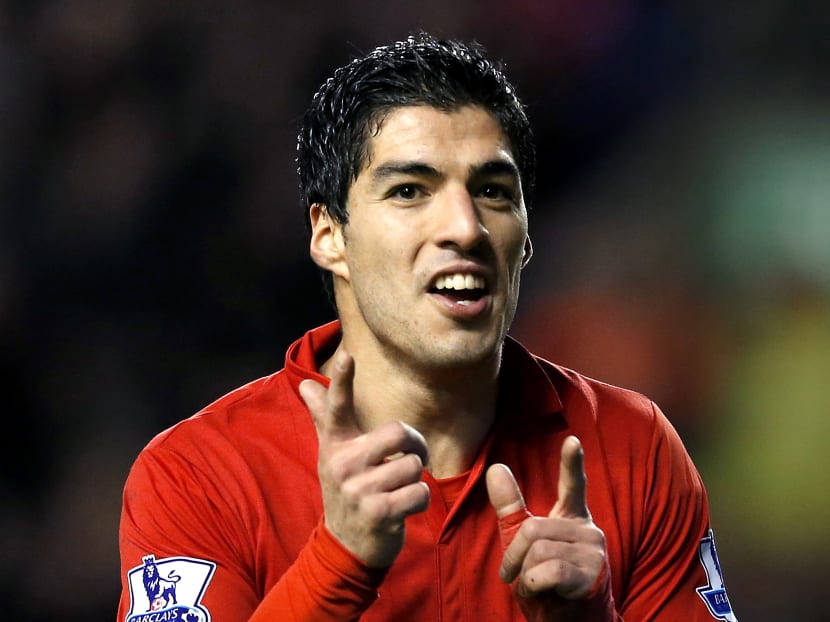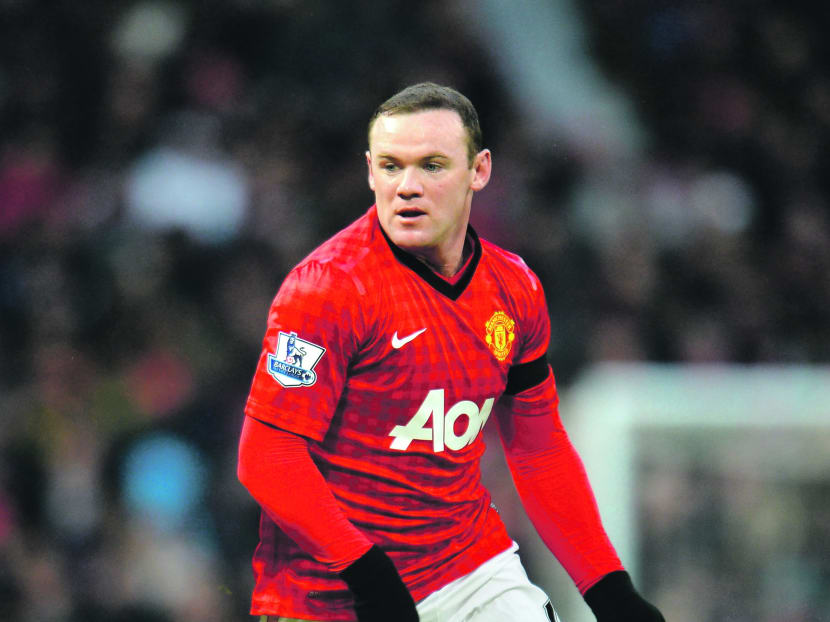Why silly money is being thrown about
Why has this summer’s transfer season been such an ugly one, marked by the top clubs scrapping with one another as they try to prise away one another’s top players? TODAY’S EPL analyst Adrian Clarke says it’s because of increasing player power, and the too-high stakes of missing out on Champions League football.


Why has this summer’s transfer season been such an ugly one, marked by the top clubs scrapping with one another as they try to prise away one another’s top players? TODAY’S EPL analyst Adrian Clarke says it’s because of increasing player power, and the too-high stakes of missing out on Champions League football.
The Premier League is a hostile place right now. Desperate for a stellar season, the big guns are busy circling one another, cracking their knuckles and flexing their biceps in readiness for a bitter, late summer scrap.
Six doesn’t go into four, you see.
Manchesters United and City, Chelsea, Arsenal, Tottenham and Liverpool all have fantastic squads, incredible wealth, and as a result, expect Champions League football.
Risking plenty of what they have to ensure that they don’t miss out is a simple decision to make — because absence from Europe’s elite is much more expensive than a marquee signing.
As a consequence, this summer’s transfer window is fast becoming ugly. Respect of contracts, budgetary constraints, gentleman’s agreements, confidential clauses, and privately-held conversations are all being launched head first out of boardroom windows and into the public domain on a daily basis.
The ruthless pursuit of a crucial deal falling in the club’s favour knows no bounds.
PLAYER POWER
And if the clubs aren’t leaking information to suit their own needs, the players are doing it instead.
Back in my day, professional footballers who wanted to leave were banished to the reserve team.
I vividly recall Arsenal’s 1989 title-winning hero Michael Thomas training with a 16-year-old me, by means of punishment for expressing interest in a move to Liverpool. The transfer eventually went through, but not before Thomas had been heavily penalised by manager George Graham. This was common practice for rebellious players.
They had little choice in where they were heading either.
The day Arsenal told the late, great David Rocastle he was being sold to Leeds United in 1992, it broke his heart. I remember him being too upset to say goodbye to the lads. But he still went — because the club asked him to. That was how it worked back then, even for established England internationals.
These days, the boot is well and truly on the other foot, and this is one of the root causes of the skulduggery we’re seeing.
Last summer, Man United pushed and pushed for Robin van Persie’s signature, despite Arsenal refusing to talk. In years gone by, with the press unaware what was happening and social media being non-existent, that would probably have been the end of the matter.
Instead, van Persie’s open letter to the club declaring his desire to leave was published, and there was nowhere else for Arsenal to go. He had to be sold, reluctantly, to a major rival.
Not since their £29-million (S$56.2-million) deal with Leeds United for Rio Ferdinand in 2002, had United prised a key man away from a genuine title threat.
Samir Nasri, Emmanuel Adebayor and Gael Clichy were all granted their wish to leave Arsenal, signing for City in the wake of declaring their desire to leave. Had those players kept quiet and left it to the clubs to sort things out, who knows if the moves would have transpired.
Sad though it is, using a player’s voice to force through a transfer has become too successful a tactic for clubs to ignore.
Following United and City’s lead, it’s now Chelsea and Arsenal’s turn to try their luck.
Jose Mourinho has told the world he intends to ram-raid United for Wayne Rooney. He’s unapologetic about it. He did this, safe in the knowledge that the player himself would not rebuff the approach.
Sooner or later, if Rooney plucks up the courage to speak, he will leave Old Trafford for Stamford Bridge; perhaps against United’s will.
With a stash of cash burning a hole in his elegant suit pockets, Arsene Wenger will be confident his latest £42,000,000 bid to steal Luis Suarez from Liverpool had a reasonable chance of success. The player’s advisers had no doubt, given the Gunners’ assurances. Anfield’s hierarchy might be fuming, and the Reds may well be intent on receiving their valuation of the Uruguayan, but if Suarez downs tools and says enough is enough, he, like others before him, will have to be sold. Watch this space.
Player power is just too strong, and with the media so open, the gentle art of private persuasion has been barged out of the way by a new aggressive, bullying approach to transfer dealings — because it works.
NEW BOSSES FLEXING MUSCLES
English football’s changing managerial landscape has also played its part in this summer’s hullabaloo.
David Moyes, Manuel Pellegrini and the returning Jose Mourinho are all marking out their territories, trying to gain the psychological initiative. At Liverpool, weakened by a seventh place finish, the still unproven Brendan Rodgers is also keen not to be viewed as easy prey.
Mourinho’s public courting of Rooney is as much about testing the nerve of Moyes, as it is nabbing the striker. Wenger’s determination to land Suarez stems from his own club’s superior position of strength, and he wants to emphasise it.
Spending huge money on a star that is already established in the Premier League also happens to make real sense. Robin van Persie, Dimitar Berbatov, Michael Carrick, Wayne Rooney and Rio Ferdinand have all provided United with excellent value for money after they were recruited from rivals.
Carlos Tevez, Samir Nasri, and Gael Clichy were all an integral part of Man City’s historic title success, while Ashley Cole and, to a lesser extent, Fernando Torres, both contributed to various trophy successes at Chelsea. In contrast, Arsenal, who haven’t bought a first teamer from a major rival in over a decade, are in the midst of a well-publicised silverware drought.
Buying a star player that’s already done the business in the Premier League, is, as history shows, usually smart business. This season’s Big Six are more evenly matched in terms of personnel and financial muscle than they’ve been for many seasons. That race for a spot inside European football’s golden honeypot is as competitive as I can remember.
When the medals are handed out, and the cheques are written at the end of this season, few people, in truth, will care how the winners went about comprising their squad. It’s all about the here and now.
And that’s why this summer’s crazy fist fight for the best players is sure to go the distance. Watch out; it is going to get dirty.
About the author:
TODAY EPL analyst Adrian Clarke is a former Arsenal midfielder, who has played at every level of English football. Now an experienced sports journalist he writes for many publications around the world. Follow him on Twitter @adrianjclarke





